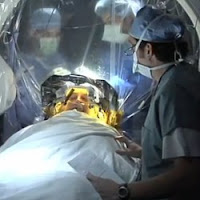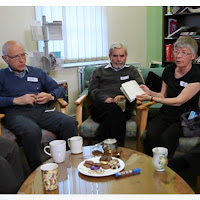VIDEO & ARTICLE
See how doctors implant a deep-brain-stimulation device in “The Advance Study”. Learn how its electrodes stimulate a part of the brain called the fornix. Can it successfully slow memory decline & improve cognitive function in early-stage Alzheimer’s?
GAINESVILLE, Fla. — Researchers at the University of Florida have performed deep brain stimulation on a patient with Alzheimer’s disease as part of a clinical trial studying whether the treatment can slow progression of the disease.
The trial involves 20 people with early-stage Alzheimer’s. It is taking place at four sites across the United States, including UF. (Continued below video)
Called the Advance Study, the multicenter clinical trial will evaluate whether using electrodes to stimulate a part of the brain called the fornix can slow memory decline and improve cognitive function in patients in the early stages of Alzheimer’s disease.
“The goal of treating Alzheimer’s disease with neuromodulation is to try to enhance what patients have and slow down memory loss and the process of the disease so they can have a few more years of good function,” said Dr. Michael Okun, co-director of the UF Center for Movement Disorders and Neurorestoration and a site principal investigator for the study. “This is a potentially exciting symptomatic therapy.”
Characterized by memory loss and a steady decline in cognitive abilities, Alzheimer’s disease affects as many as 5.1 million Americans, according to the National Institute on Aging.
Deep brain stimulation is used to treat a variety of conditions, including Parkinson’s disease, dystonia and Tourette syndrome. In the procedure, researchers carefully place electrodes in specific regions of the brain. When these electrodes are turned on, they send electrical signals that prompt a therapeutic response.











